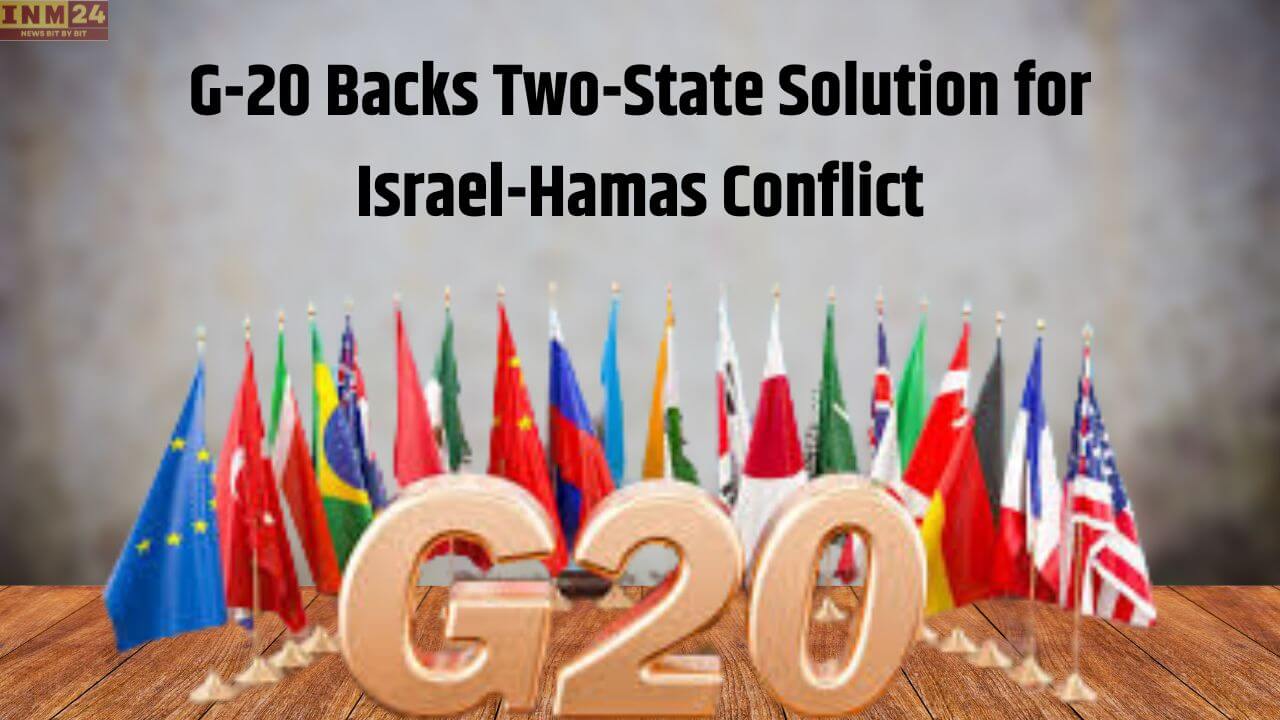During the G-20 summit in Brazil, foreign ministers from member countries unanimously voiced their support for a two-state solution as a diplomatic resolution to the Israel-Hamas conflict. The gathering, led by Brazilian Foreign Minister Mauro Vieira, concluded with widespread apprehension about the ongoing hostilities in Gaza and the looming threat of its expansion in West Asia.
Global Consensus on a Two-State Solution
The meeting witnessed a unified stance from G-20 nations, advocating a two-state solution as the only path to lasting peace amid the Israel-Hamas conflict. Foreign ministers emphasized that it is the singular route to resolving the longstanding tensions in the region. The unanimous support underscores the international community’s commitment to finding diplomatic solutions to complex geopolitical challenges.
Concerns Over Escalation in West Asia
The concluding remarks by Minister Vieira highlighted the collective concerns of the world’s largest economies regarding the ongoing conflict in Gaza and the potential spillover effect in West Asia. The ministers expressed their worry over the escalating tensions and the risk of further hostilities spreading across the region.
International Calls for Ceasefire and Humanitarian Aid
The G-20 ministers issued a call for an immediate ceasefire in Gaza, urging all parties involved to prioritize diplomatic dialogue and humanitarian efforts. Additionally, several nations criticized Israel’s actions in Rafah, with many calling for an end to the Israeli incursion.
Discussion on the Russia-Ukraine Conflict
Addressing the broader international landscape, V. Muraleedharan, India’s Minister of State for External Affairs, called for an urgent session on the Russia-Ukraine conflict. He emphasized the need for immediate discussions and a return to diplomatic channels and strategic negotiations. As the European Union’s High Representative for Foreign Affairs, Josep Borrell, stated that there is no indication from Russia to accept a ceasefire in the ongoing conflict, raising concerns about President Putin’s intentions to prolong the war.
India’s Stance on Security Council Reforms
Minister Muraleedharan took the opportunity to call for comprehensive reforms in the United Nations Security Council, stating that the current framework of international governance has become outdated. He urged G-20 nations to work collaboratively towards restructuring global institutions to better reflect the contemporary geopolitical landscape.
A Call for Regional Stability in West Asia
Expressing India’s viewpoint on the Israel-Hamas conflict, Muraleedharan condemned all forms of terrorism and highlighted the need to prevent the further spread of conflicts in West Asia. He called for a robust diplomatic resolution to address the root causes of political and territorial disputes in the region.
As G-20 nations express collective concerns and advocate for diplomatic resolutions, the international community awaits developments in both the Israel-Hamas conflict and the broader geopolitical landscape, particularly in the face of the ongoing Russia-Ukraine war.
